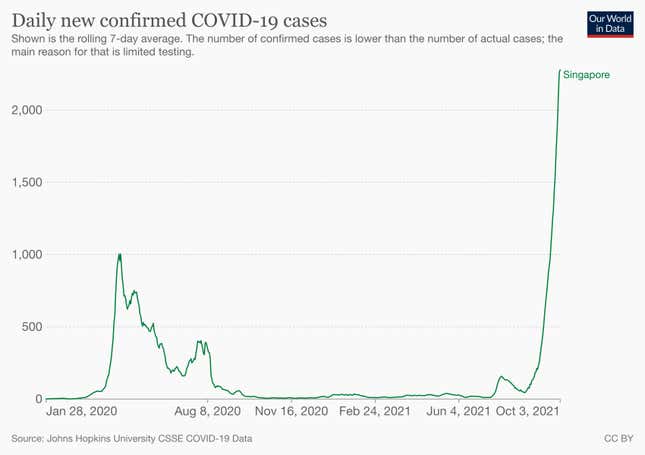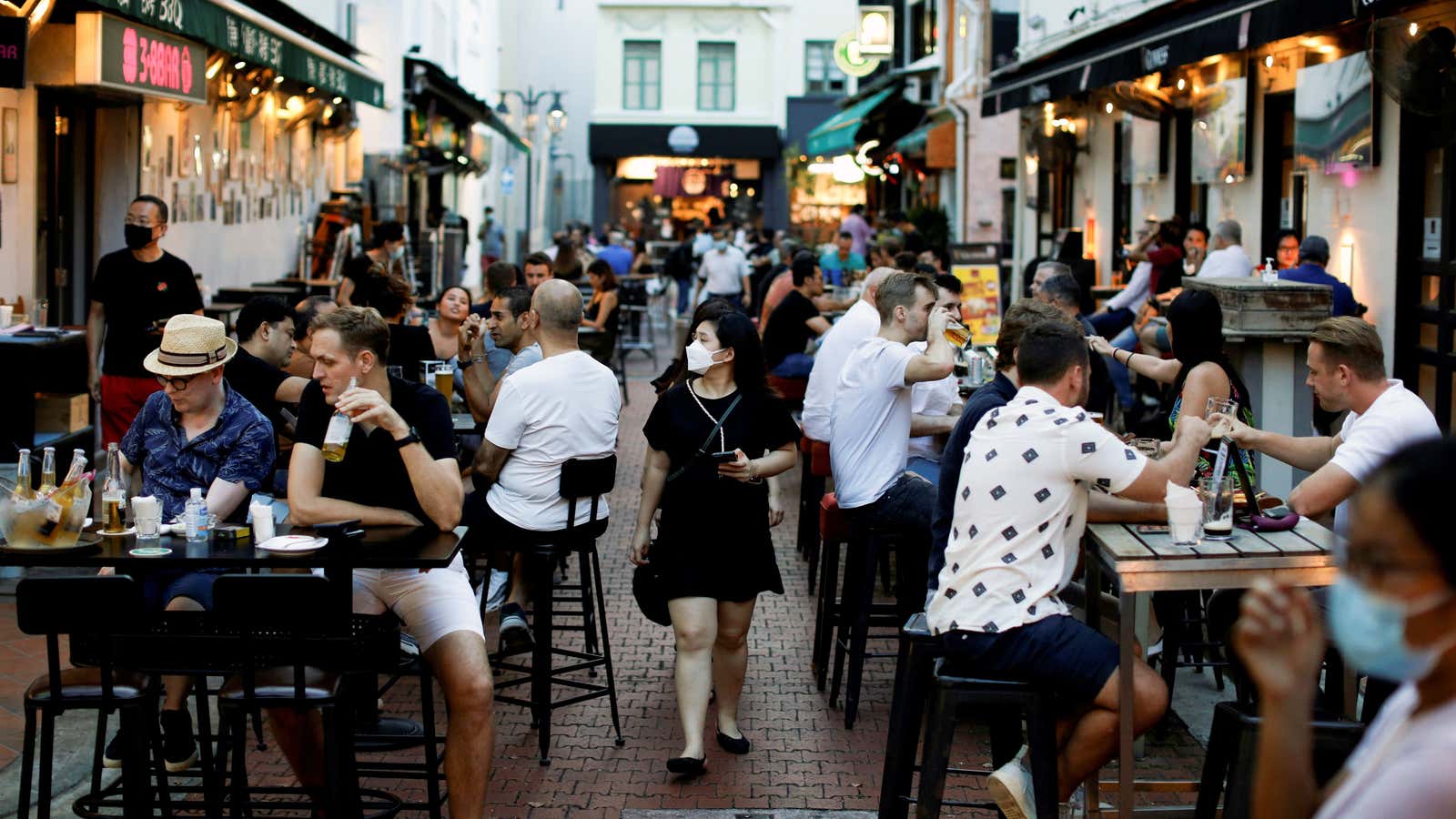Singapore’s current Covid-19 spike is both puzzling and expected.
Puzzling because the island nation has fully vaccinated 82% of its population of 5.7 million, a share once believed to be past the threshold for herd immunity. But Singapore has now been reporting record high cases since late September, with more than 2,900 new infections on Oct. 1.
Prior to this wave, the highest single-day total was 1,426 reported in April 2020.

Singapore’s shift to living with Covid
To a large extent, this can be attributed to the change in Singapore’s outlook towards Covid-19. In late June, the city-state began mapping out a planned shift towards living a more normal life. At the time it was seeing just a handful of daily cases and 40% of residents were vaccinated.
The spike is likely also a consequence of the more transmissible delta variant, which has become dominant globally. Other countries like New Zealand have had to abandon their zero-Covid strategies despite lockdowns because of delta.
While announcing a four-step strategy on Aug. 6, the ministry of health said that it would focus on higher vaccinations and focus on severe cases rather than merely looking at new infections. “It will then not dominate our lives but become part of our new normal,” it said. The “endgame” of this strategy was to see Covid-19 as endemic, with a constant but low number of positive cases always present in the community.
That month, country eased restrictions for vaccinated residents, allowing indoor dining, large concerts and events, and weddings with up to 1,000 vaccinated attendees. It also announced plans for limited quarantine-free travel from a couple of low-risk locations.
The role of vaccines in Singapore
The city-state’s confidence in allowing crowds to gather stemmed from the fact that it followed its strict lockdowns last year with a quick and wide vaccine rollout this year. These strategies have combined to keep hospitalizations and deaths low. From the start of the pandemic to the end of September, fewer than 100 people died of Covid in Singapore.
Most new cases of Covid-19—over 98%—have been either mild or asymptomatic, according to Singapore’s health ministry. The death rate over the last 28 days stands at 0.1%, despite an unprecedented surge in cases.
Singapore’s vaccination programme has largely relied on highly efficacious mRNA vaccines like those made by Pfizer and Moderna. It has also announced a booster shot since Sept. 15 for people over the age of 60 and those who are immunocompromised.
Is Singapore at the endemic stage with Covid-19?
On Sept. 24, in response to the surge after the ease in restrictions, Singapore clarified that it is still in a transition phase, where restrictions may come back or be eased depending on the caseload and the burden on the healthcare system, and that the endemic stage is still a while away.
Some observers also believe that the reason Singapore’s Covid-19 numbers seem to be high given its vaccination coverage is because of too much testing. According to data from the UK-based Our World in Data project, Singapore has performed an average of 3.3 Covid-19 tests per person, below the UK’s average of 3.9 tests per person. The number for the US stands at 1.7. Among the various measures that the opposition Singapore Democratic Party has suggested is to stop testing asymptomatic individuals, and focus healthcare resources on those who are visibly ill.
Last week, Singapore reintroduced some of the earlier restrictions from Sept. 27—for instance, limiting people to groups of two rather than five—the type of speed bump that other countries making this transition may also experience (take note, New Zealand).
But the country is still on the path to become a “Covid resilient nation,” the health ministry said.
